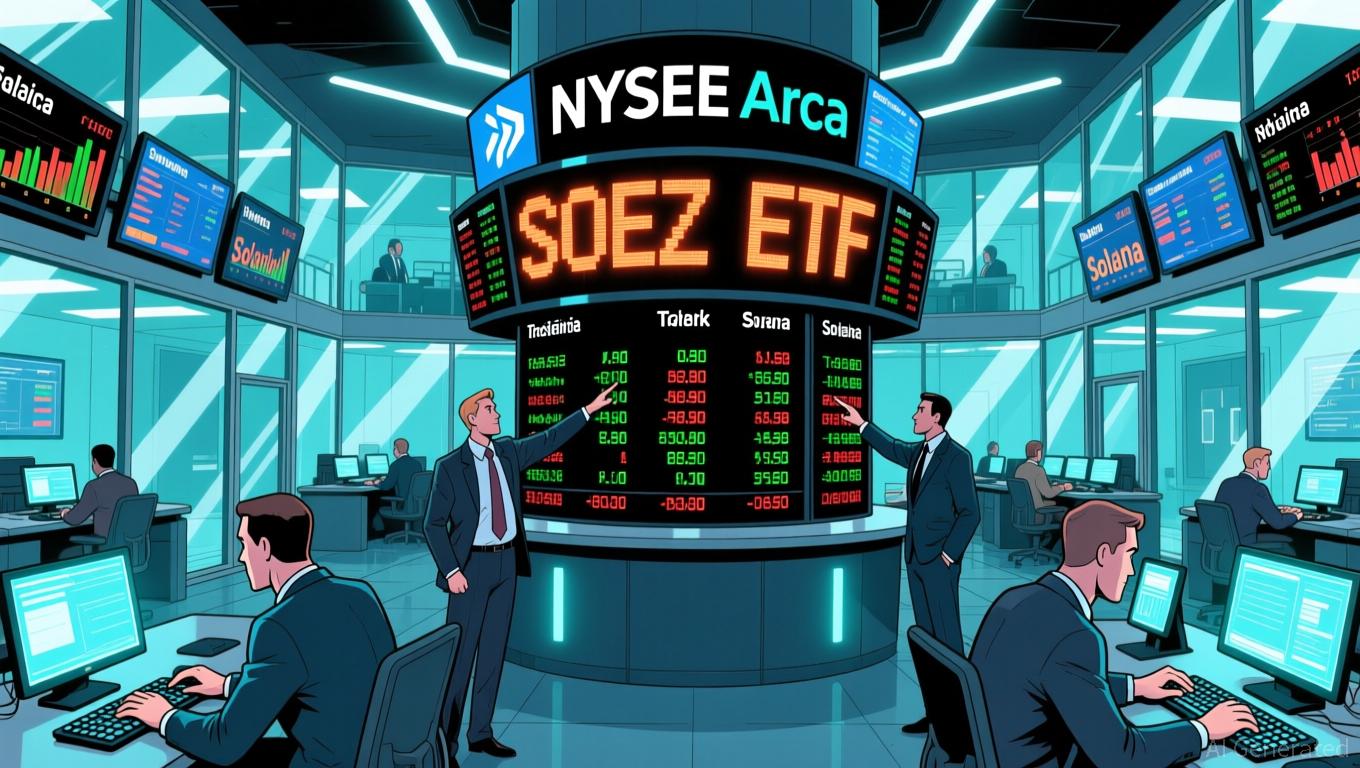Franklin Templeton has completed its final regulatory filings for its
Solana
spot ETF, indicating that its launch on the market is imminent as the company aims to tap into the rising institutional appetite for altcoin investments. The ETF, which will trade under the ticker SOEZ on NYSE Arca,
has submitted a Form 8-A to the SEC
, a step that is widely seen as a sign that trading could begin in the near future. The fund will impose a 0.19% management fee, but sponsor fees will be waived for the first $5 billion in assets until May 2026,
a strategy aimed at attracting early investors
. This move follows Franklin’s earlier launch of an
XRP
ETF last November,
which attracted $164 million in investments
on its opening day, showcasing the company’s broader push to expand its crypto ETF offerings.
The introduction of the Solana ETF is part of a larger trend of institutional adoption in the industry,
with leading asset managers such as Fidelity, VanEck, and Bitwise
also rolling out Solana-related products in recent weeks. The new ETF will physically hold SOL tokens and follow the CF Benchmarks Solana Index,
giving investors straightforward access
to the asset without the need to handle private keys or digital wallets. This approach is similar to traditional commodity ETFs,
setting it apart from futures-based products
and making it attractive to conventional investors who want regulated exposure to digital currencies.
Clearer regulatory guidelines have been crucial in enabling these product launches.
In 2025, the SEC introduced standardized rules
for commodity-backed crypto ETFs, streamlining the approval process for altcoin funds. This regulatory change has sparked a wave of Solana ETF launches, with six such funds now trading in the U.S., including Bitwise’s BSOL, which leads the sector with $478 million in assets.
Grayscale’s GSOL and Fidelity’s FSOL
, both introduced in November, have also seen strong inflows, highlighting robust institutional demand. At the same time, XRP ETFs have outperformed Solana in short-term inflows, surpassing $587 million since late October,
fueled by aggressive fee reductions
from providers like Franklin and Grayscale.
Franklin’s Solana ETF could have a significant effect on the market. By offering liquidity through established brokerage channels, the fund may boost Solana’s adoption among both professional and individual investors.
Experts point out that ETFs can serve as demand absorbers
, helping to reduce selling pressure from long-term holders and contributing to price stability. Nonetheless, volatility remains a concern,
as the crypto sector is still vulnerable
to regulatory developments and broader economic trends. The ETF’s performance could also prompt other asset managers to speed up their own altcoin ETF launches,
increasing competition in the market
.
As the crypto ETF sector evolves, the relationship between new product offerings and market forces will be increasingly important. Franklin’s move into the Solana market highlights the growing mainstream acceptance of altcoins, positioning the firm as a leader in a rapidly expanding industry.
